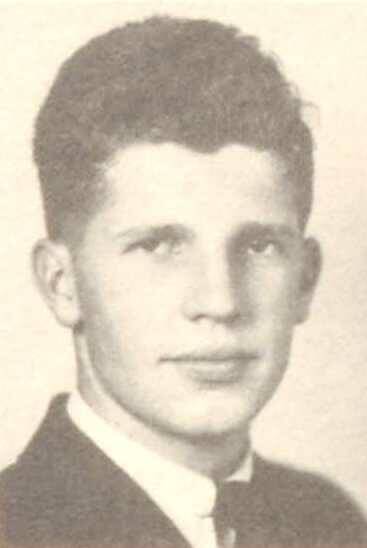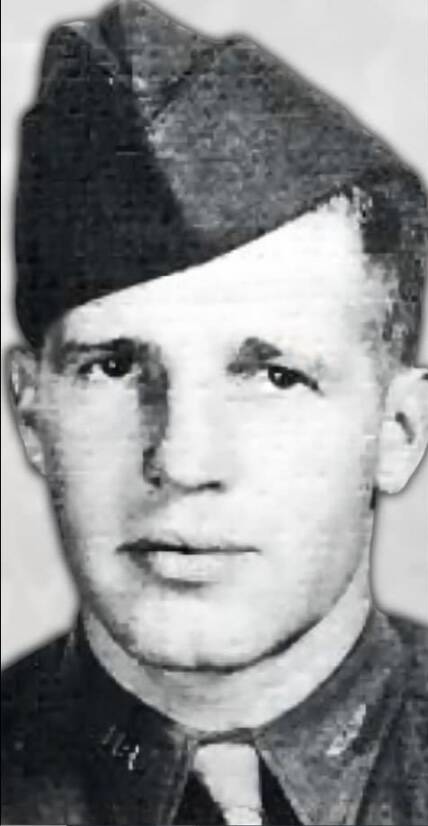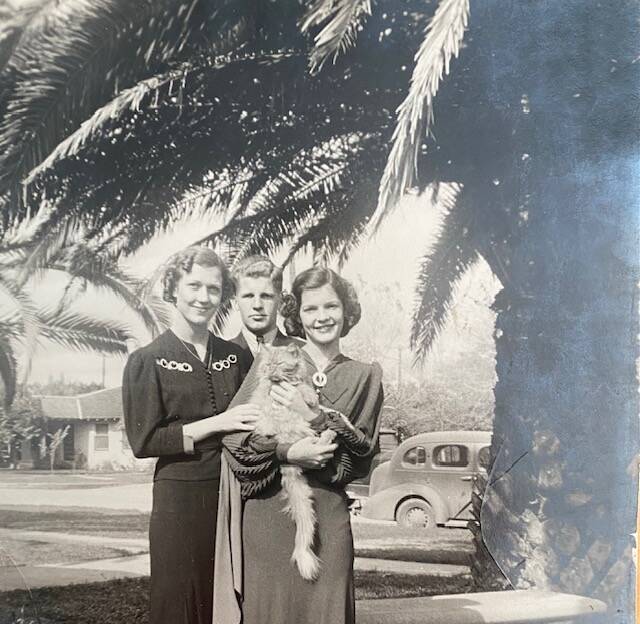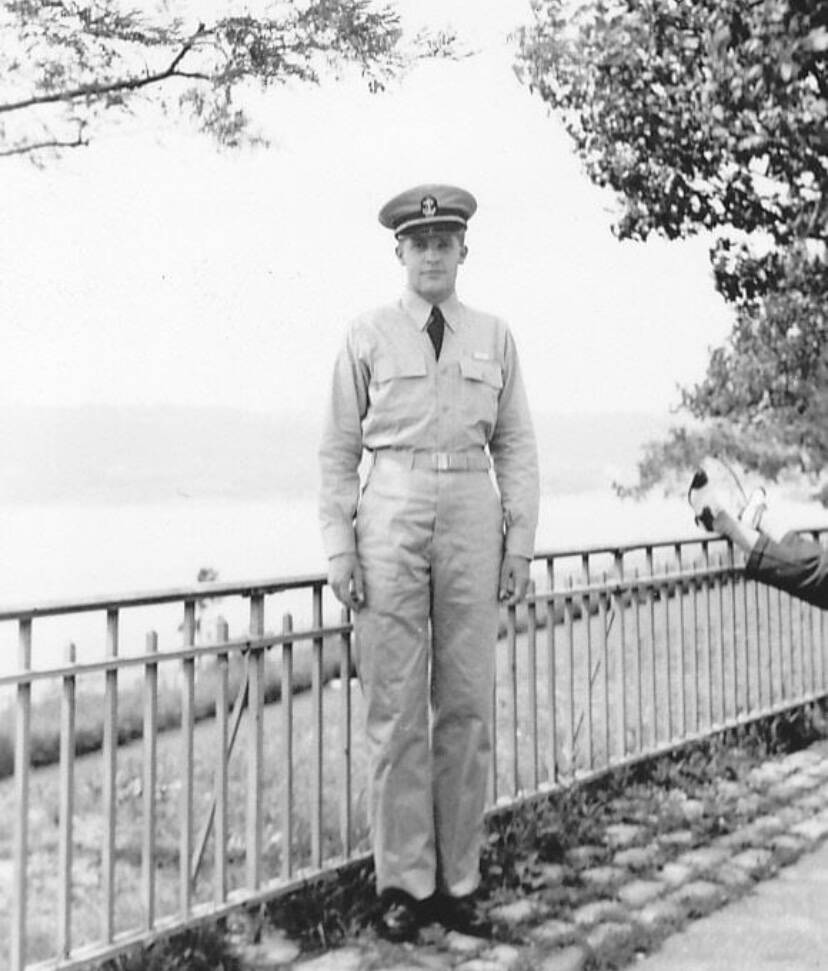|
Only have a minute? Listen instead
Getting your Trinity Audio player ready...
|
HARLINGEN — It’s a slower time and a quieter time in the life of the world and in the life of Harlingen when a young Porter Pile heads off to school.
He’s just a youngster at Central Ward Elementary school on Jackson Street in the new town founded just a few years before in 1910. There is promise, there is new agriculture and there are farmers and railroads and the establishment of new communities.
World War I has ended with the Treaty of Versaille, which levied crushing penalties on Germany with the message that Germany was solely to blame for World War I. And while all seems quiet on all fronts, the crushing penalties of the Treaty have already set in motion events which will prove catastrophic to millions.
There’s an unsettling of things beneath the slowness and the quietness, a stirring of dark changes in far away places where Adolf Hitler is beginning his sinister work and where Japan has begun its expansion. At the moment, Japan has expanded only into northeastern China; it is but a precursor of things to come, as is the erratic behavior of a fledgling madman on the fringes of German society who will exploit German resentments against the Treaty to satisfy his own bloodlust.

The United States is still in its isolationist state, quietly and deceptively immune from the tragedies across the Atlantic and across the Pacific. Farmers and industrialists take care of their own. In the 1920s so many enjoy the delusions of the Gilded Age with wild spending that ultimately leads to an economic collapse.
It is into this America, this very different America from what anything we know today, that Porter Pile is born. His story begins in Joplin, Missouri where he and his two sisters were born. It stops off in a bombing raid over Germany in 1944 when Porter’s B24 Liberator is shot down, and finally comes to an end on Oct. 31 when he is buried with full military honors at Arlington National Cemetery.
“We never knew exactly what happened to Porter,” said Randy Fleuriet, husband of long-time Harlingen school board member Gerry Fleuriet.
“He was listed as missing in action for a year and declared dead one year and one day after that as was customary,” said Fleuriet, 80. “But in the minds of the family they still didn’t know where he was, what happened to him, and of course held out hope that maybe he was a prisoner of war somewhere.”

Porter’s parents, Leo and Helen Pile, and his sisters Rozanne and Virginia (Fleuriet’s mother) wondered for a lifetime what became of Porter. They knew the bomber on which he’d served as navigator had been shot down over Kassel, Germany. Six of the nine on board died, and one survivor told the family Porter had been hit in the leg and the plane had caught fire.
But, did he die in the crash? Was he a prisoner of war? Perhaps he was living somewhere and had lost his memory. What happened? What had happened?
They didn’t know. And they died not knowing. Porter’s parents died in the 1950s, and his sisters are long gone. But they remembered the rest of their lives the brother they lost, even purchasing a tombstone in a family plot in Dallas with his name so he would have a resting place when he finally came home.
The family’s journey has been an interesting one, but a well-traveled path for many at that time. Fleuriet’s cousin Brett Morgan, 72, says their grandfather’s older brother was sort of a leader to some members of his family including Morgan’s grandfather Leo Pile.

“I know that my grandfather Leo Pile had a tendency to follow him,” said Morgan, who lives in Baltimore, Maryland.
And so the family — remember this was during the Roaring Twenties, the Jazz Age — moved to Florida first and then followed this older brother to Harlingen where they remained for a time.
“I know my grandfather Leo worked for the bank in Harlingen, I believe he was a bank officer at first, and I think he also at a later time was involved in real estate,” he said.
Certainly this was a time to be in real estate and banking in the Rio Grande Valley. For generations Mexican and then Mexican-American ranchers had run cattle on vast landholdings. Many of these families could trace their origins to the days of the Spanish land grants.
Things began to change in the early 20th Century when men like John Shary, John Closner, Mifflin Kennedy, Richard King and Charles Stillman purchased land and built irrigation systems. The development of the citrus industry and truck farming along with the year-round growing season drew people from throughout the United States seeking new opportunities. The Mexican Revolution had also caused a mass migration of Mexicans seeking work in the Valley.
And so it was into this world that Porter entered with his family, with new schools, new banks, new residents. The area of Harlingen had heretofore been known as “Six-Shooter Junction.” Lon C. Hill had arranged for a railroad to be built from Corpus Christi to Brownsville with a line branching off to an area which was founded in 1910 as “Harlingen.”
The family lived on Polk Street, and Fleuriet and Morgan both believe young Porter went first to Central Ward, the elementary school on Jackson Street, and then to Travis Junior High. He graduated from Harlingen High School in 1937 and then he went to Texas A&M University in Kingsville.
By this time the fragmentation of the world had accelerated with Nazi atrocities and Japanese expansionism becoming more brutal. Still, Americans resisted entering the war in either theater. British Prime Minister Winston Churchill had pleaded long hours with U.S. President Franklin Delano Roosevelt to enter the war with England to stop Nazi Germany.
Still, Roosevelt resisted until the morning of Dec. 7, 1941 when the Japanese attacked Pearl Harbor. Certainly it was a tragedy for all, but that night Churchill slept very well, knowing that the United States had just entered the war.
And so had Porter Pile.
Editor’s note: This is the first of a three-part series on the life — and death — of Lt. Porter Pile.
Here’s the second part:
Harlingen man missing for 80 years nearly finished required WWII combat runs




